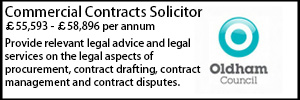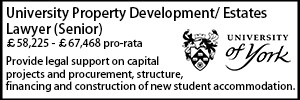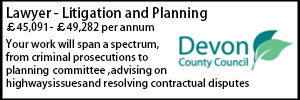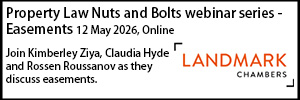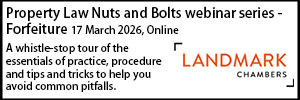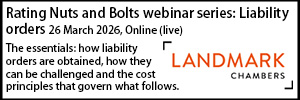Disposal of open space
- Details
The High Court has rejected a challenge to the lease by a London borough of part of a park to Tottenham Hotspur FC for a women’s and girls’ football academy. Matt Hutchings KC explains why.
R (Wilkinson) v London Borough of Enfield & Tottenham Hotspur Limited [2024] EWHC 1193 (Admin)
London boroughs’ power to dispose of open space not limited by the Greater London Parks and Open Spaces Order 1967.
In July 2023 the London Borough of Enfield (“the Council”) decided to enter into an agreement to grant a 25 year lease of part of Whitewebbs Park, comprising a former golf club dating from the 1930s, to Tottenham Hotspur Football Co Limited for use as a women’s and girls’ football academy and turf academy. In September 2023 the Council and Tottenham Hotspur FC entered into the agreement for lease.
The Council were satisfied that granting the lease would realise the following benefits:
“… increasing the amount of freely publicly accessible open space, which was previously a golf course, the provision of community facilities and an investment in biodiversity and park infrastructure … improved space for all park users, which would help narrow the gap between the best and poorest physical and mental health among Enfield residents … the existing café and former clubhouse adjacent to this would be improved, therefore providing all park users a space to meet and connect, supporting mental health and wellbeing … improvements to the park’s infrastructure including to bridleways and footpaths would create an enhanced destination for exercise and active travel.”
The Claimant, Mr Wilkinson, is a local resident and chair of the Friends of Whitewebbs Park. In September 2023 he brought a claim for judicial review challenging the decision and, by later amendment, the agreement for lease.
Parks are often held by local authorities on a statutory trust for the enjoyment of the public under s.164 of the Public Health Act 1875 (“the 1875 Act”) or s.10 of the Open Spaces Act 1906 (“public trust land”). S.123(1) of the Local Government Act 1972 (“the 1972 Act”) confers a wide power of disposal of land on a principal council. S.123(3) of 1972 Act as originally enacted limited the power of disposal in respect of public trust land to an area of 250 square yards. Provided that the council undertakes a form of local consultation, the land disposed of is freed from the statutory trust. The Local Government, Planning and Land Act 1980 inserted new subsections (2A) and (2B) into s.123, which had the effect of removing the 250 square yards limitation. However, the savings clause at s.131(1)(b) of the 1972 Act provides, in summary, that s.123 does not empower a local authority to act otherwise than in accordance with, inter alia, a local Act.
There were four grounds of challenge. First, the Council had no power to grant the lease because their power of disposal under s.123 of the 1972 Act was restricted by the Greater London Parks and Open Spaces Order 1967 (“1967 Order”). Secondly, the Council had acted unlawfully by failing to appropriate the land from its current use as open space for the purposes of the disposal, under s.122 of the 1972 Act. Thirdly, the Council failed to take properly into account the statutory purpose for which they held the Park, namely as public trust land under the 1875 Act. Fourthly, the Council were wrongly advised that they could treat the premium payable by Tottenham Hotspur FC for the lease as a capital receipt and use it for General Fund purposes: in fact, the Council were obliged to re-invest the premium in the remaining public trust land at Whitewebbs Park.
In a comprehensive judgment handed down on 17 May 2024, Mr Justice Mould rejected all grounds of challenge.
In relation to the first ground, Mould J held that, whilst the Claimant submitted correctly that the 1967 Order was a “local Act” within the meaning of the savings clause in s.131 of the 1972 Act, so that any disposal under s.123 of the 1972 Act must be “in accordance with” the 1967 Order, the 1967 Order had to be read as a whole. The 1967 Order included article 20, which provided that the powers it conferred were additional to and not in derogation of any other powers of the local authority. Therefore, although the grant of the lease was not authorised under articles 7 and 8 of the 1967 Order, it was “in accordance with” the 1967 Order. In so holding, Mould J noted that there was a factual distinction between the present case and R(Muir) v Wandsworth LBC in that, in Muir a different local Act, the Wandsworth Common Act 1871, imposed a prohibition on any disposal of the common.
In relation to the second ground, shortly before the hearing the Council accepted that they held part of the land to be leased to Tottenham Hotspur FC subject to a public trust under the 1875 Act. Nevertheless, Mould J held that neither the terms of ss.122 and 123 of the 1972 Act nor their legislative history supported the Claimant’s submission that appropriation was a necessary condition precedent to the disposal of public trust land on a lease. Ss.122 and 123 conferred freestanding, separate powers. It was unnecessary for the Council to take a separate decision to appropriate their freehold reversion.
Rejecting the third ground, Mould J was satisfied in the light of the content of the decision reports that the Council had recognised and taken proper account of the fact that granting the lease would be inconsistent with the public’s enjoyment of the land under the public trust.
Finally, in relation to the fourth ground, the Judge followed obiter dicta of the Court of Appeal and Supreme Court in R (Day) v Shropshire Council to the effect that the land and the statutory trust arising under the 1875 Act were inseparable, holding that on the grant of the lease to Tottenham Hotspur FC the statutory trust would be extinguished, releasing the Council from any fiduciary duty owed to the public in respect of the proceeds: they were free to use the premium for general purposes.
Matt Hutchings KC is a barrister at Cornerstone Barristers. He acted for the London Borough of Enfield, instructed by Michael Smith of London Borough of Enfield Legal Services.
Join the Cornerstone Barristers public law team at its upcoming conference Public Law in 2024: Practical Insights and Trends on 4 July 2024 in Central London. A packed schedule of talks will take in topics including duty of candour and disclosure, remedies, practical tips for bringing and defending claims, consultation, remedies, costs, plus a comprehensive case law update, and keynote speaker, Lady Arden.
Sponsored articles
Walker Morris supports Tower Hamlets Council in first known Remediation Contribution Order application issued by local authority
Unlocking legal talent
Senior Solicitor - Property
Legal Officer
Locums
Poll








